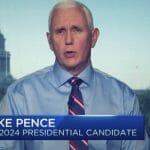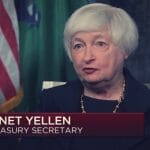If you were to name places in the world where you wouldn’t consider investing today what comes to mind? How about Venezuela where the economy is in ruins, the president discredited and the opposition mounting? Or a specific company in this country like Pacific Gas and Electric, PG&E for short, the California utility that filed for bankruptcy and bore the physical and legal brunt of the recent devastating California wild fires? Those are fertile ground for contrarian investors, or just traditional value investors who look for opportunities where others fear to tread. Globe-trotting Eaton Vance bond manager Kathleen Gaffney looks where others are fleeing for higher total returns.
Invest Where Others Fear To Tread For Income And Appreciation: Eaton Vance’s Kathleen Gaffney
Q4 hedge fund letters, conference, scoops etc
Transcript
We're still at that inflection point. Moving closer towards that secular rise in interest rates we've seen a lot of that recently with increased volatility and the 10 year moving up closer and closer to 3 percent.
So the secular decline in interest rates is still in progress. It isn't over.
Transitions sometimes take a very long time and that's exactly what is going on here. But you're seeing some big transitions that I think make it an inflection point in that we're going from monetary policy to fiscal policy. The economy is really changing and Labor is starting to have a stronger voice.
So when you say that we're going from monetary policy or fiscal policy is that as far as where the stimulus for the economy is coming from exactly the global financial crisis.
Right. We've been in an environment of low interest rates central banks really controlling the markets and they have done as much as they can do and at this point it's moving towards the politicians. We've had a lot of political issues all around the globe. Populism nationalism. There isn't enough growth going for everyone. And so the politicians are taking charge and we're seeing fiscal stimulus. So the tax cuts talk about infrastructure spending. You're seeing it not only in theU.S. but in Europe and China. It's all around the globe. So Kathleen how does that affect your job. These are very interesting times so interesting. It's hard to look away because the politics are impacting the markets right. And really moving the markets so you need to think about the motivations behind political decisions. It's it's absolutely fascinating. But it impacts the way we think about emerging markets it's impacting the way we think about developed markets. And as as challenging as these times are it's creating some very important opportunities particularly for fixed income investors.
So what are you paying attention to and what is making a difference and how you are investing in theU.S. for instance.
That was a big reversal on the part of power. It is so refreshing though to hear him talk because he speaks in everyday language. So when we pay attention to what he says right. I think he's really a rock and a hard place a very tough position because the mission that the Fed is on is to get back to normal as quickly as they can. We're late cycle in the economy. Things are good. But at some point we're going to have a recession when a recession occurs. The Fed generally needs about 400 to 500 basis points of room to move down.
So that's in layman's language that's four to five percentage Fullwood percent right to a room in interest rates so the Fed funds should be you know I don't know 2 3 4 percent higher than it is now. Right.
So the Fed funds rate need to get there. Right. Because we're not going back to zero. We are still waiting to see more and more inflation. I actually think that the shutdown when it ended it ended because the air traffic controllers the transportation system was choked. Right. We needed workers. Right. That's a big signal that the workers have the power and that means that they can negotiate for higher wages.
So you think is that going to be part of the returning to normalcy is that we're going to see wage increase. Yes. OK. I think that is definitely coming because labor markets are tight and the fiscal stimulus is going to continue whether it's infrastructure whether it's changes in taxes and spending.
We're going to get growth going. And so those are upward pressures on interest rates. So while the pause here gives us time to remove what I think helped the Fed make that decision which is we've got to be able to help with all the uncertainty out there that's being caused by the politicians. We have a trade war. We have Breg China. Right. Right. Braggs it it's an awful lot of unsearched.













